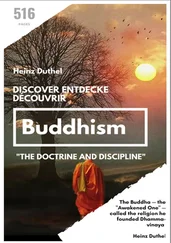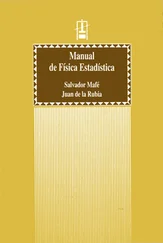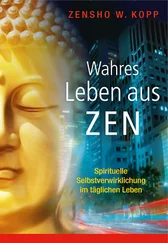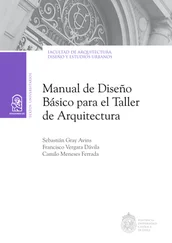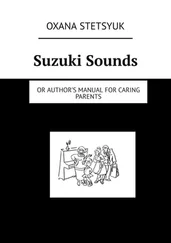Teitaro Suzuki - Manual of Zen Buddhism
Здесь есть возможность читать онлайн «Teitaro Suzuki - Manual of Zen Buddhism» весь текст электронной книги совершенно бесплатно (целиком полную версию без сокращений). В некоторых случаях можно слушать аудио, скачать через торрент в формате fb2 и присутствует краткое содержание. Жанр: Религиоведение, Религия, Руководства, на английском языке. Описание произведения, (предисловие) а так же отзывы посетителей доступны на портале библиотеки ЛибКат.
- Название:Manual of Zen Buddhism
- Автор:
- Жанр:
- Год:неизвестен
- ISBN:нет данных
- Рейтинг книги:3 / 5. Голосов: 1
-
Избранное:Добавить в избранное
- Отзывы:
-
Ваша оценка:
- 60
- 1
- 2
- 3
- 4
- 5
Manual of Zen Buddhism: краткое содержание, описание и аннотация
Предлагаем к чтению аннотацию, описание, краткое содержание или предисловие (зависит от того, что написал сам автор книги «Manual of Zen Buddhism»). Если вы не нашли необходимую информацию о книге — напишите в комментариях, мы постараемся отыскать её.
Manual of Zen Buddhism — читать онлайн бесплатно полную книгу (весь текст) целиком
Ниже представлен текст книги, разбитый по страницам. Система сохранения места последней прочитанной страницы, позволяет с удобством читать онлайн бесплатно книгу «Manual of Zen Buddhism», без необходимости каждый раз заново искать на чём Вы остановились. Поставьте закладку, и сможете в любой момент перейти на страницу, на которой закончили чтение.
Интервал:
Закладка:
15. The Great Way is calm and large-hearted,
For it nothing is easy, nothing is hard;
Small views are irresolute,
The more in haste the tardier they go.
16. Clinging is never kept within bounds,
It is sure to go the wrong way;
Quit it, and things follow their own courses,
While the Essence neither departs nor abides.
17. Obey the nature of things, and you are in concord with the Way,
Calm and easy and free from annoyance;
But when your thoughts are tied, you turn away from the truth,
They grow heavier and duller and are not at all sound.
18. When they are not sound, the spirit is troubled;
What is the use of being partial and one-sided then?
If you want to walk the course of the One Vehicle,
Be not prejudiced against the six sense-objects.
19. When you are not prejudiced against the six sense-objects,
You are then one with the Enlightenment;
The wise are non-active,
While the ignorant bind themselves up;
While in the Dharma itself there is no individuation,
They ignorantly attach themselves to particular objects.
It is their own mind that creates illusions—
Is this not the greatest of all self-contradictions?
20. The ignorant cherish the idea of rest and unrest,
The enlightened have no likes and dislikes:
All forms of dualism
Are contrived by the ignorant themselves.
They are like unto visions and flowers in the air;
Why should we trouble ourselves to take hold of them?
Gain and loss, right and wrong—
Away with them once for all!
21. If an eye never falls asleep,
All dreams will by themselves cease:
If the Mind retains its absoluteness,
The ten thousand things are of one Suchness. [4]
22. When the deep mystery of one Suchness is fathomed,
All of a sudden we forget the external entanglements;
When the ten thousand things are viewed in their oneness,
We return to the origin and remain where we ever have been.
23. Forget the wherefore of things,
And we attain to a state beyond analogy;
Movement stopped and there is no movement,
Rest set in motion and there is no rest;
When dualism does no more obtain,
Oneness itself abides not.
24. The ultimate end of things where they cannot go any further
Is not bound by rules and measures:
In the Mind harmonious [with the Way] we have the principle of identity,
In which we find all strivings quieted;
Doubts and irresolutions are completely done away with,
And the right faith is straightened;
There is nothing left behind, There is nothing retained,
All is void, lucid, and self-illuminating;
There is no exertion, no waste of energy—
This is where thinking never attains,
This is where the imagination fails to measure.
25. In the higher realm of true Suchness
There is neither “self” nor “other”:
When direct identification is sought,
We can only say, “Not two” [5].
26. In being “not two” all is the same,
All that is is comprehended in it;
The wise in the ten quarters,
They all enter into this Absolute Reason.
27. This Absolute Reason is beyond quickening [time] and extending [space],
For it one instant is ten thousand years;
Whether we see it or not,
It is manifest everywhere in all the ten quarters.
28. Infinitely small things are as large as large things can be,
For here no external conditions obtain;
Infinitely large things are as small as small things can be,
For objective limits are here of no consideration.
29. What is is the same as what is not,
What is not is the same as what is:
Where this state of things fails to obtain,
Indeed, no tarrying there.
30. One in All,
All in One—
If only this is realized,
No more worry about your not being perfect!
31. Where Mind and each believing mind are not divided,
And undivided are each believing mind and Mind,
This is where words fail;
For it is not of the past, present, and future.
III. FROM HUI-NENG'S TAN-CHING [1]
24. Mahaprajnaparamita is a Sanskrit term of the Western country; in T'ang it means “great-wisdom ( chih-hui ), other-shore reached”. This Truth ( dharma = fa ) is to be lived, it is not to be [merely] pronounced with the mouth. When it is not lived, it is like a phantom, like an apparition. The Dharmakaya of the Yogin is the same as the Buddha.
What is maha ? Maha means “great”. The capacity of Mind is wide and great, it is like emptiness of space. To sit with a mind emptied makes one fall into emptiness of indifference. Space contains the sun, the moon, stars, constellations, great earth, mountains, and rivers. All grasses and plants, good men and bad men, bad things and good things, Heaven and hell-they are all in empty space. The emptiness of [Self-] nature as it is in all people is just like this.
25. [Self-] nature contains in it all objects; hence it is great. All objects without exception are of Self-nature. Seeing all human beings and non-human beings as they are, evil and good, evil things and good things, it abandons them not, nor is it contaminated with them; it is like the emptiness of space. So it is called great, that is, maha . The confused pronounce it with their mouths, the wise live it with their minds. Again, there are people confused [in mind]; they conceive this to be great when they have their minds emptied of thoughts—which is not right. The capacity of Mind is great; when there is no life accompanying it it is small. Do not merely pronounce it with the mouth. Those who fail to discipline themselves to live this life, are not my disciples.
26. What is prajna ? Prajna is chih-hui (wisdom). When every thought of yours is not benighted at all times, when you always live chih-hui (= prajna , wisdom), this is called the life of Prajna. When a single thought of yours is benighted, then Prajna ceases to work. When a single thought of yours is of chih, i.e. enlightened, then Prajna is born. Being always benighted in their minds, people yet declare themselves to be living Prajna. Prajna has no shape, no form, it is no other than the essence ( hsing ) of chih-hui (wisdom).
What is Paramita ? This is a Sanskrit term of the Western country. In Yang it means “the other shore reached”. When the meaning ( artha in Sanskrit) is understood, one is detached from birth and death. When the objective world ( visaya ) is clung to, there is the rise of birth and death; it is like the waves rising from the water; this is called “this shore”. When you are detached from the objective world, there is no birth and death for you; it is like the water constantly running its course: this is “reaching the other shore”. Hence Paramita .
The confused pronounce [Prajna] with their mouths; the wise live it in their minds. When it is merely pronounced, there is at that very moment a falsehood; when there is a falsehood, it is not a reality. When Prajna is lived in every thought of yours, this is known as reality. Those who understand this truth, understand the truth of Prajna and practise the life of Prajna. Those who do not practise it are ordinary people. When you practise and live it in one thought of yours, You are equal to the Buddha.
Читать дальшеИнтервал:
Закладка:
Похожие книги на «Manual of Zen Buddhism»
Представляем Вашему вниманию похожие книги на «Manual of Zen Buddhism» списком для выбора. Мы отобрали схожую по названию и смыслу литературу в надежде предоставить читателям больше вариантов отыскать новые, интересные, ещё непрочитанные произведения.
Обсуждение, отзывы о книге «Manual of Zen Buddhism» и просто собственные мнения читателей. Оставьте ваши комментарии, напишите, что Вы думаете о произведении, его смысле или главных героях. Укажите что конкретно понравилось, а что нет, и почему Вы так считаете.



